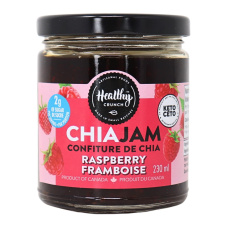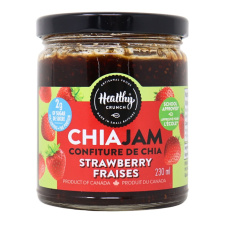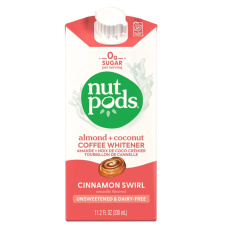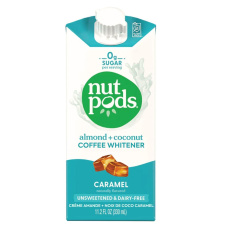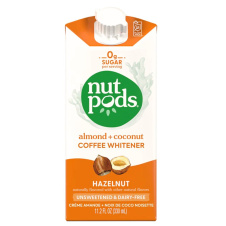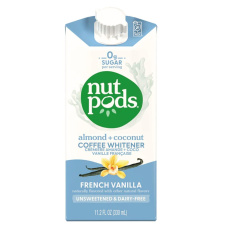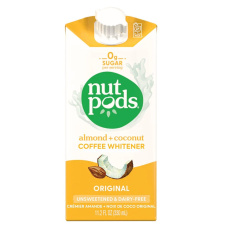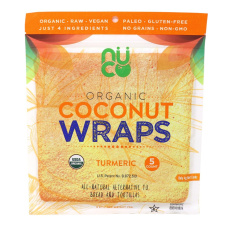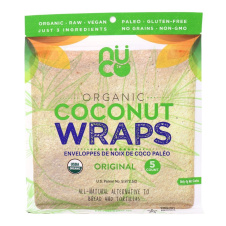
Why Paleo Diet?
A paleo diet is a dietary plan based on foods similar to what might have been eaten during the Paleolithic era, which dates from approximately 2.5 million to 10,000 years ago.
The digestive tract and nutritional needs of humans were developed slowly by Paleolithic people adapting to the foods found in their environment. While food manufacturing and processing technology have improved rapidly over the past several centuries, humans’ nutritional needs and digestive systems stayed almost the same.
People still need the same types of whole and nutrient-packed foods that they relied on the way back when cavemen were walking the Earth.
Natura Market offers a wide range of Paleo Products. Shop your favourite!
Purpose
The idea behind paleo diet is that today's processed foods aren't a good match for humans. Due to poor diets people lacking many needed nutrients. This results in a population that is overfed and obese, yet still malnourished on a cellular level.
The aim of a paleo diet is to return to a way of eating that's more like what early humans ate.
A paleo diet typically includes lean meats, fish, fruits, vegetables, nuts and seeds - foods that in the past could be obtained by hunting and gathering. A paleo diet limits foods that became common when farming emerged about 10,000 years ago. These foods include dairy products, legumes and grains.
The diet also emphasizes drinking water and being physically active every day.
What to eat
In general, paleo diet favours organic, non-GMO products like fruits, vegetables, nuts, seeds, fish and grass-fed beef. This adds up to a diet that's high in protein and fibre, contains an average amount of fat, and is low in carbs.
- Fruits
- Vegetables
- Nuts and seeds
- Lean meats, especially grass-fed animals
- Fish, rich in omega-3 fatty acids, such as salmon, mackerel and tuna
- Oils from fruits and nuts, such as olive oil or walnut oil
Meat and fish you eat should be fresh rather than frozen or canned. Some other foods are eggs, coconut oil, avocado, olives, and a few root vegetables that are high in nutrients, like sweet potatoes. Small amounts of honey are also allowed.
The paleo diet supports protein, most of which comes from animal products. If you have a health issue like kidney disease and need to watch how much protein you have, a paleo diet may not be safe.
Shop your Paleo Foods today!
What to avoid
Essentially, people cannot digest many modern foods like grains, legumes, dairy or sugar.
You need to stay away from dairy products and cereal grains like wheat and oats. But that's not all. You must steer clear of potatoes and legumes like beans, peanuts, and peas. Also off-limits: refined sugar, salt, and highly processed foods.
Salt is a no-no on the paleo diet. Studies show that cutting back on sodium can lower blood pressure. Plus, when you give up refined carbs, you also help protect your heart in the long run. Eating too many simple carbs, like those you find in sugar, pasta, and white bread, is linked to heart disease.
- Grains, such as wheat, oats and barley
- Legumes, such as beans, lentils, peanuts and peas
- Dairy products
- Refined sugar
- Salt
- Potatoes
- Highly processed foods in general
Why aren’t grains, dairy and beans Paleo?
Dairy products, beans and grains cause digestive and health issues for many people. Although they are considered to be healthy, these foods cause adverse effects like issues with managing blood sugar, low energy levels, food cravings, autoimmune reactions, and more. The reason is that these foods require a long growing, cleaning, preparation, and cooking period, all of which weren’t possible in Paleolithic hunter-gatherer times.
Moreover, they contain fewer vitamins, minerals, protein, and antioxidants than other paleo foods do, so it’s best to get your calories from foods that are more beneficial.
Paleo benefits
People who follow the paleo diet very often have great health results. This is believed to occur because harmful foods that humans are not adapted to eating are removed from the diet. At the same time, there is a dramatic increase in the number of vitamins, minerals, and antioxidants added to the diet.
A diet with a lot of fruits and vegetables may lower your chances of getting heart disease, including heart attack and stroke. It's also a good source of fibre, which can help cut your chances of becoming obese or getting type 2 diabetes. You also get more vitamins A, C, and E. These nutrients boost your immune system, the body's defence against germs and may help prevent cancer and other diseases.
Natura Market offers a wide range of Paleo Products. Shop your favourite!



